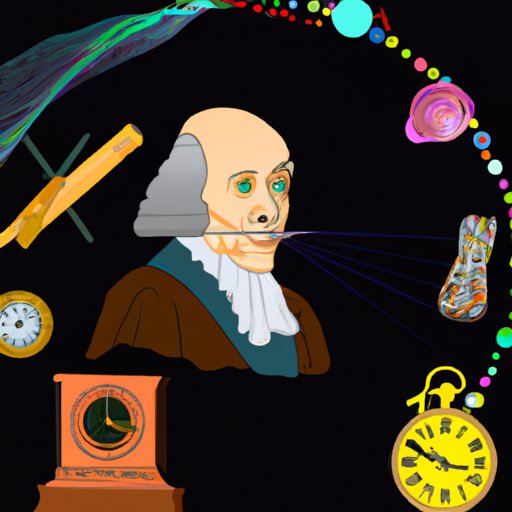Introduction
Time is a fundamental concept in our lives. We use it to plan and organize our days, measure progress, and even define our identities. But who exactly invented time? This article will explore the history and social implications of time keeping to answer this question.

Historical Perspective: Examining the History of Time Keeping
The history of time keeping can be traced back thousands of years to early calendars and clocks. Ancient civilizations such as the Egyptians and Babylonians used the stars, sun, and moon to track the passing of days and the changing of seasons. The first mechanical clocks were developed in the 13th century, although these devices were not particularly accurate. It wasn’t until the 17th century that more precise mechanical timekeeping devices were developed, such as the pendulum clock.

Exploring the Technological Advancements that Enabled the Invention of Time
Advances in astronomy were essential to the development of accurate timekeeping devices. Astronomers began using telescopes to measure the movement of the stars, which allowed them to calculate the length of a day with greater precision. Electronics and computers also played an important role in the invention of time. Calculations that would have taken hours or even days to complete by hand could now be done in seconds. This made it possible to develop more accurate timekeeping devices, including atomic clocks.

The Role of Astronomy in Establishing Universal Time Standards
In 1884, the International Meridian Conference established a universal standard for time zones based on the Greenwich meridian. This decision was based on astronomical observations and calculations, which enabled the world to move from local solar time to the coordinated universal time scale we use today. Longitude and latitude are also essential components of time measurement. By determining the position of a location on the Earth’s surface, you can accurately calculate its time zone.
Philosophical Considerations on the Nature of Time
Throughout history, philosophers have debated the nature of time. Aristotle suggested that time is a continuous and infinitely divisible quantity, while Immanuel Kant argued that time is a mental construct and not an objective reality. Despite their differences, both theories emphasize the subjective nature of time.
Investigating the Social Implications of Time Keeping
The invention of time has had far-reaching social implications. For example, the advent of the industrial revolution saw the introduction of working hours and labor laws. The ability to accurately measure time also changed how people view the concept of punctuality and influenced human behavior.
Analyzing the Impact of Time Measurement on Human Development
Accurate time measurement has enabled advances in human development and productivity. It has allowed us to become more efficient and better organized. Time measurement has also enabled us to accurately plan and schedule activities, making it easier to achieve goals and maximize resources.
Conclusion
In conclusion, while no one person invented time, the development of accurate time measurement has enabled advances in human development and productivity. Time keeping has become an integral part of our lives, shaping how we view the concept of punctuality and influencing our behavior. By understanding the history and social implications of time keeping, we can better appreciate its importance in our lives.
(Note: Is this article not meeting your expectations? Do you have knowledge or insights to share? Unlock new opportunities and expand your reach by joining our authors team. Click Registration to join us and share your expertise with our readers.)
